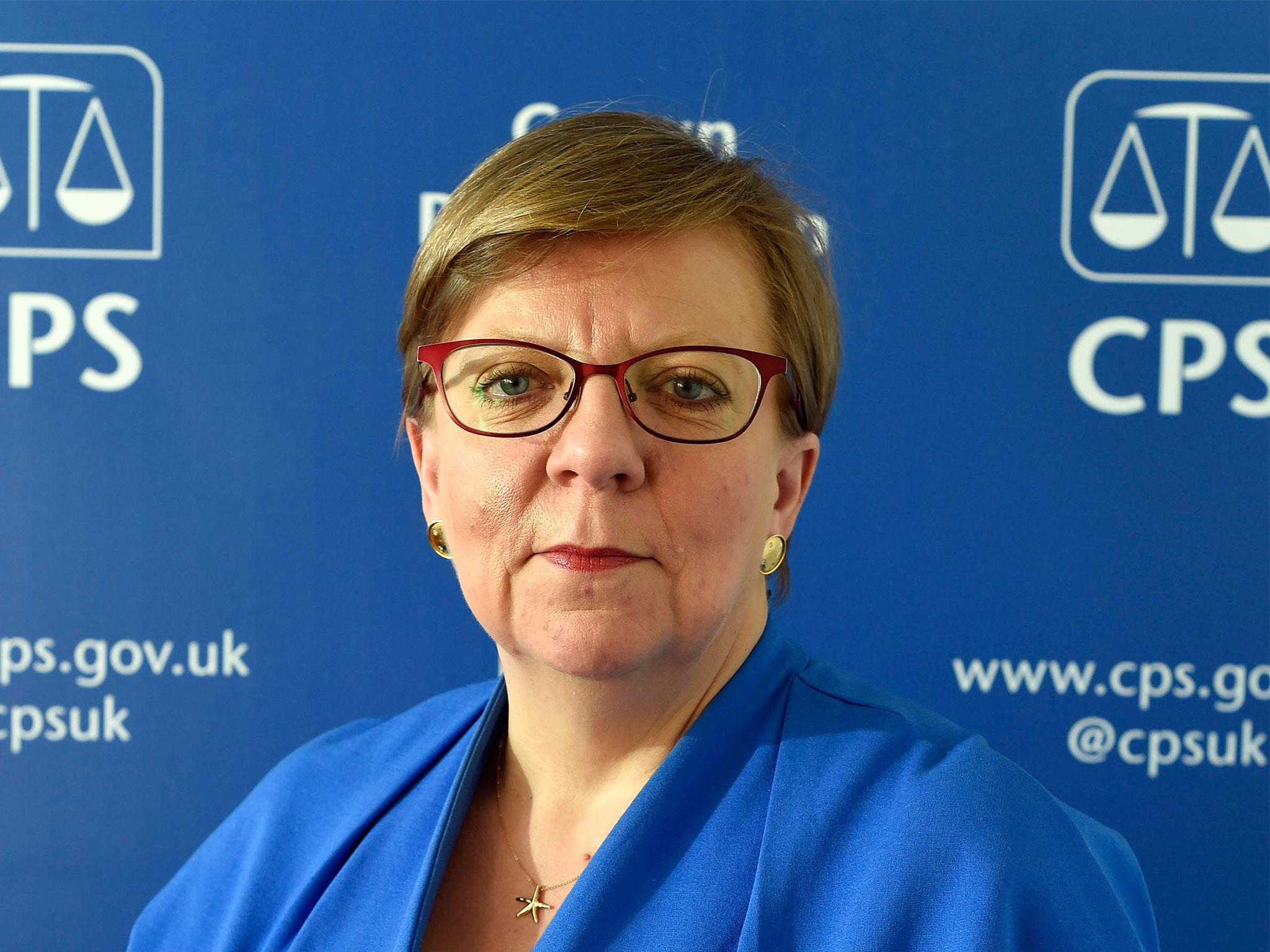No one innocent is in prison due to disclosure failures, claims DPP after string of rape cases collapse
Lawyers attack 'impossible' claim after rape and bribery cases collapse over missed messages and photos
Britain’s most senior prosecutor has claimed that no innocent people are in prison because of failures to disclose vital evidence, despite admitting there is a “systemic issue”.
Critics dismissed Alison Saunders’ assurance as “impossible” as they follow the collapse of several high-profile rape cases which were undermined by phone messages and pictures uncovered by lawyers.
One man had his rape conviction overturned last month after serving four years in prison. Judges said Danny Kay would not have been found guilty if previously unseen Facebook conversations were shown to jurors.
But Ms Saunders, the Director of Public Prosecutions, said she “doesn’t think” the failure by police and prosecutors to pass on evidence has resulted in anyone being wrongly imprisoned.
“The protections are there to make sure there is a fair trial and people are not wrongly imprisoned,” she told BBC Radio 4’s Today programme. “The problem we have found recently is around the ever increasing use of social media and the digital material we obtain.”
In the most recent case to fall through, an Eritrean rape suspect who was under investigation for 18 months was freed with no further action after lawyers found photos showing him and the complainant “cuddling” in bed.

Samson Makele's legal team said police had downloaded the entire contents of the 28-year-old's phone but failed to fully examine it.
Ms Saunders appeared to lay part of the blame on his defence team.
"The suspect must have known he took photographs, that could have been raised very early," she said.
She added: "How would anyone have known there were photographs there until the defence told us that they were there?”
She went on to claim that “the system worked” because the case against Mr Makele was eventually cleared but acknowledged: “It should have happened much earlier and we’re making sure that happens.”
Harriet Johnson, a barrister who represented Mr Makele, said it was the police’s responsibility to find relevant material and not the suspect’s job “to do it for them”.
“To try to put the burden on the defendant to prove he is innocent fundamentally undermines the presumption of innocence that has been a core principle of British justice for centuries,” she told The Independent.
“If it had been left up to the police, this case would have gone to trial and the jury would never have seen these photographs. When you’re talking about a person’s liberty, that’s too close a call.”
Ms Johnson agreed that defence lawyers must challenge courts if they think material has not been shared but warned that the Crown Prosecution Service (CPS) often takes weeks to respond.
“We keep just being told that everything’s fine, even when experience repeatedly shows that that’s far from the reality,” she added. “We see disclosure failures in case after case. I find it impossible to believe that there aren’t more like Mr Kay.”
Two rape cases fell through within a week in December, sparking a review of all live child abuse and sexual offences by London's Metropolitan Police and a mounting scandal over the potential miscarriage of justice.
Ms Saunders claimed police prioritise text messages over other potential evidence on phones, adding: “The download was not complete so certainly the prosecutors had no idea the photographs were there.
“We don’t look into every single aspect of everybody’s life, there’s got to be a proportionate response.”
Lawyers say they are frequently told police do not have the time, training or resources to examine thousands of messages and photos on each smartphone – technology which did not exist when forces were given the responsibility of checking for evidence.
But Ms Saunders, who met with senior police officers and barristers, avoided a question on the alleged shortage of resources.
“There’s a complete systemic issue because it’s about everybody doing their job, everybody looking,” she said. “We [the CPS] are there to look at whether it should be disclosed, whether it undermines our case or assists, which means we’ve got to have it from police in the first place.”
The lawyer who represented Liam Allan, a student whose rape trial collapsed over undisclosed text messages in December, warned that the failings were not just affecting sexual offence cases.
“It’s just not possible that there are no innocent people sitting in prison because disclosure hasn’t carried out properly,” Julia Smart told The Independent. “It’s not just the sex cases and it’s not just the Metropolitan Police.”
Earlier this month, she said a businessman was cleared of bribery after “18 months of absolute hell” when lawyers presented undisclosed emails to the court.

Ms Smart said the defendant had told police about communications with his accusers, giving dates and his password when investigators seized his laptop, but they were not read.
“Whenever I’ve raised this with those who prosecute they say the police are stretched,” she added. “I don’t know how much of it is a cultural thing and how much is money. Whoever is at fault, I don’t see how we can stop these cases in the future without urgent change.”
Robin Murray, former vice chair of the Criminal Law Solicitors Association, said 99 per cent of lawyers the group surveyed last year had encountered disclosure failures.
“It showed there are systemic evidential disclosure failures across all different crimes,” he added. “I don’t think the police should be responsible for evidential matters anymore, it should be a matter for the CPS.”
Angela Rafferty QC, chair of the Criminal Bar Association, previously suggested that unconscious bias was among the factors driving a “crisis in the system”.
A report issued in July by HM CPS Inspectorate and HM Inspectorate of Constabulary said even unused items of evidence must be reviewed by police “to see whether it is capable of undermining the prosecution case or assisting the defence case” and passed on.
Warning of widespread failures by both police and prosecutors, the authority said officers failing to comply with requirements were “often ignorant” of their disclosure responsibilities.
“Non-compliance with the disclosure process is not new and has been common knowledge amongst those engaged within the criminal justice system for many years,” the damning report concluded.
Police officers and prosecutors interviewed by inspectors said they believed limited resources and a lack of time were the main causes, even though “long-standing” problems predate recent budget reductions.
Bookmark popover
Removed from bookmarks